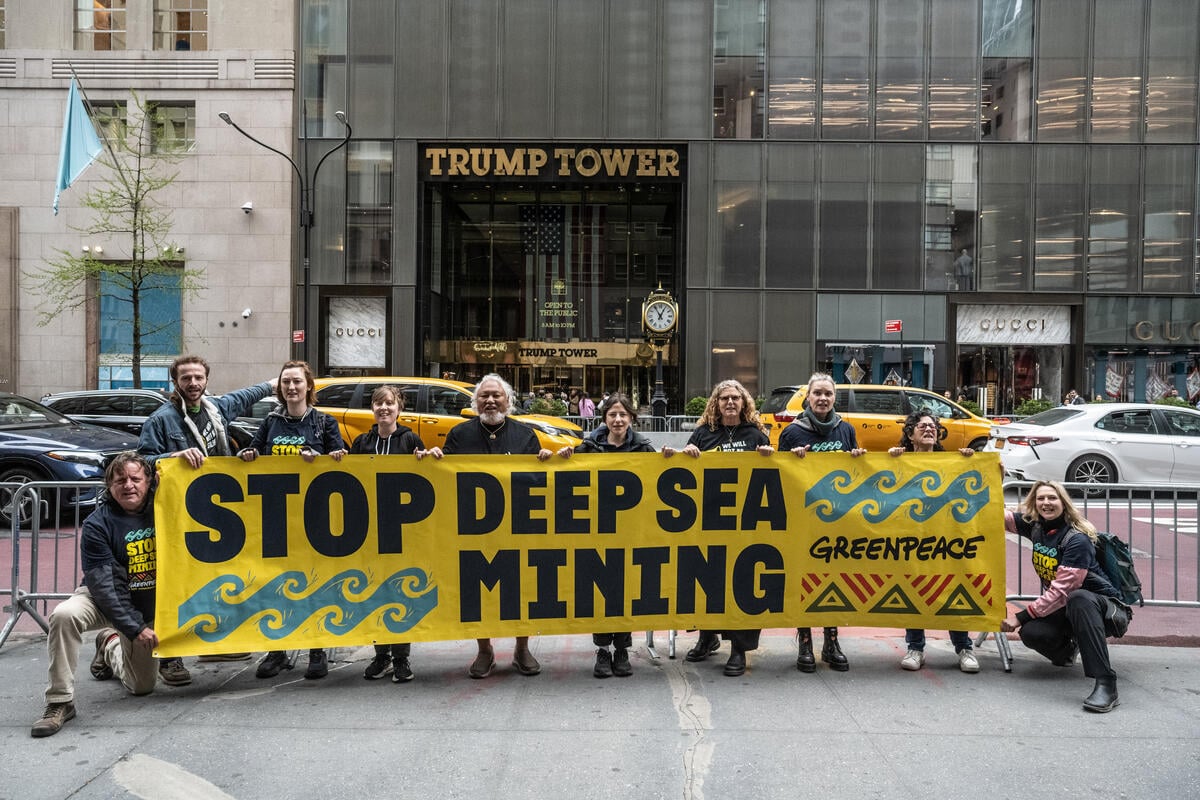How transhipment at sea facilitates illegal, unreported and unregulated fishing that devastates our oceans
Using data from Global Fishing Watch and research from a wide range of maritime sources, Greenpeace has developed a record of 416 ‘risky’ reefer (refrigeration) vessels operating on the high seas. The way these vessels operate poses a threat to the marine environment by facilitating illegal, unreported and unregulated (IUU) fishing, and undermines the human rights of their workers.
This global fleet hides behind complex ownership structures and ‘flags of convenience’ (FOCs) that reduce accountability and transparency. In a historic first, this report uncovers this murky system at scale.
Every fishery where these vessels are allowed to operate is in effect supporting an increased risk of IUU fishing and human rights abuses.
In 2019, the single most active fleet of reefers involved in transhipments on the high seas was owned and/or controlled by Greek shipping magnate Thanasis Laskaridis. Many of his vessels are reported to pose an environmental risk and use FOCs that require lower environmental, labour and safety standards.
Even in the Antarctic, which purports to have some of the best fisheries management in the world, vessels with reported health and safety infringements operate regularly and evidence suggests they have possible IUU fish onboard.
One vessel investigated by Greenpeace struck an ice floe inside Antarctic waters whilst carrying a significant quantity of fuel that could have polluted the pristine environment.
Greenpeace urges immediate action by the relevant authorities in the Antarctic and across the world to prevent the continued environmental and human rights risks posed by this fleet.
Greenpeace highlights the continued governance gaps that allow malpractice in international waters to continue and calls for a strong Global Ocean Treaty that would provide a more holistic approach to ocean governance.
Download the full report: Fishy Business



